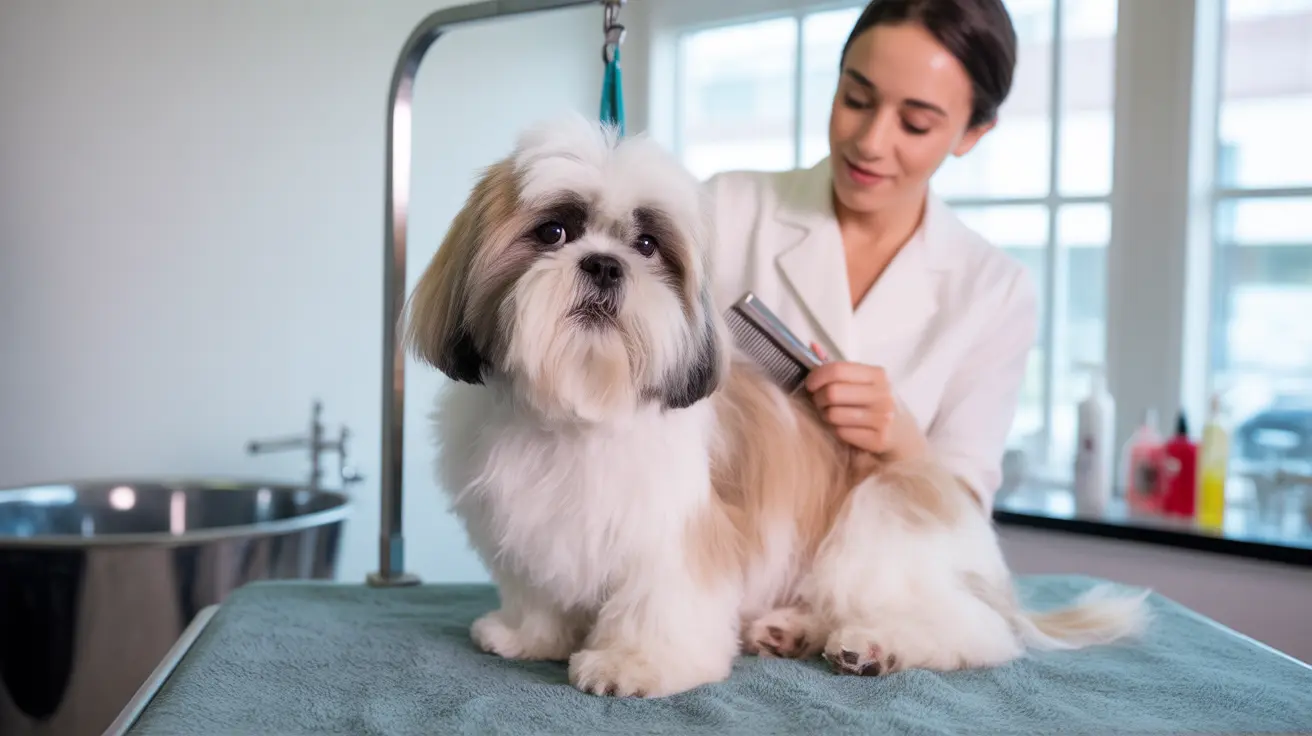Shih Tzus are beloved for their adorable faces and luxurious coats, but many owners find themselves asking, "Why do Shih Tzus stink?" While these charming dogs aren't naturally smelly, several factors can contribute to unpleasant odors that require attention and proper management.
Understanding the root causes of these odors is crucial for maintaining your Shih Tzu's health and comfort. Let's explore the common reasons behind these unwanted smells and learn effective solutions to keep your furry friend fresh and clean.
Common Sources of Shih Tzu Odors
Coat-Related Issues
The signature double coat of Shih Tzus can be a significant source of odor when not properly maintained. Their long, thick fur easily traps moisture, dirt, and debris, creating an ideal environment for bacteria growth. Regular brushing and professional grooming every 6-8 weeks are essential to prevent matting and reduce odor-causing buildup.
Skin and Fold Problems
Shih Tzus have distinctive facial folds that can harbor moisture and bacteria. These wrinkles require daily cleaning to prevent yeast and bacterial infections, which often produce a distinct musty or cheese-like smell. Using pet-safe wipes and keeping the folds dry can significantly reduce these issues.
Health-Related Causes of Odor
Ear Infections
The floppy ears of Shih Tzus create warm, dark environments where bacteria and yeast thrive. Regular ear cleaning and inspection can prevent infections that cause strong, unpleasant odors. If you notice a yeasty smell coming from your dog's ears, consult your veterinarian promptly.
Dental Issues
Poor oral hygiene often leads to bad breath and can contribute to overall body odor. Dental disease affects up to 80% of dogs by age three, making regular teeth brushing and professional cleanings essential for Shih Tzus.
Anal Gland Problems
Impacted anal glands can cause a distinctive fishy smell. This common issue in Shih Tzus may require regular expression by a professional groomer or veterinarian to prevent discomfort and odor.
Prevention and Management
Proper Grooming Routine
Establish a consistent grooming schedule that includes:
- Regular brushing (at least 3-4 times per week)
- Bathing every 3-4 weeks with dog-specific shampoo
- Professional grooming appointments every 6-8 weeks
- Daily cleaning of facial folds and eye areas
Diet and Nutrition
A balanced, high-quality diet can help prevent skin issues and reduce body odor. Some Shih Tzus may benefit from specialized foods that support skin health and reduce allergic reactions that can lead to odor-causing skin conditions.
When to Seek Veterinary Care
If your Shih Tzu develops sudden or persistent odors, especially when accompanied by:
- Excessive scratching or licking
- Redness or inflammation of the skin
- Changes in behavior or appetite
- Visible skin infections or hot spots
These symptoms may indicate underlying health issues requiring professional attention.
Frequently Asked Questions
Why does my Shih Tzu have a persistent bad odor even after regular baths?
Persistent odors despite regular bathing might indicate underlying health issues such as skin infections, yeast overgrowth, or anal gland problems. Consider consulting your veterinarian for a thorough examination and appropriate treatment plan.
How can I prevent and treat the fishy smell caused by anal gland issues in Shih Tzus?
Regular anal gland expression, either by a groomer or veterinarian, can prevent impaction. A high-fiber diet and maintaining a healthy weight can also help reduce anal gland issues.
What grooming steps are essential to reduce odor from a Shih Tzu's long, thick coat?
Essential grooming steps include daily brushing, regular professional grooming, keeping the coat clean and dry, and maintaining proper hygiene in facial folds and ears. Use appropriate dog-specific products for best results.
Could my Shih Tzu's bad breath or ear odor indicate health problems?
Yes, persistent bad breath or ear odors often indicate underlying health issues such as dental disease, ear infections, or systemic health problems. Regular veterinary check-ups can help identify and address these concerns early.
How do eye discharge and tear stains contribute to unpleasant smells in Shih Tzus?
Eye discharge and tear stains can create a breeding ground for bacteria when trapped in facial fur, leading to unpleasant odors. Daily cleaning of the face area and keeping the fur around the eyes trimmed can help prevent these issues.






